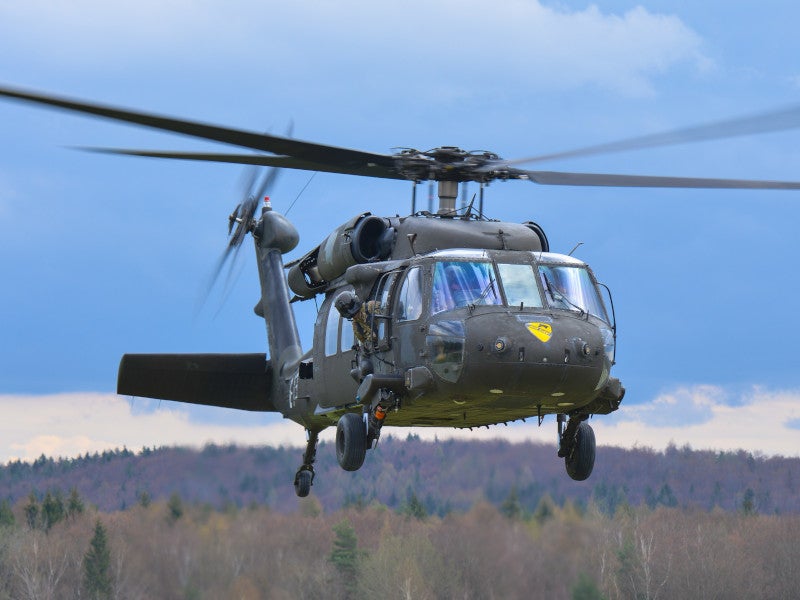The Role of UH 60 in Modern Armed Force Procedures
The Role of UH 60 in Modern Armed Force Procedures
Blog Article
The Influence of Lasting Practices on the Future of Airplane Procedures and Emissions Decrease
As the air travel market encounters increasing scrutiny over its environmental impact, the adoption of lasting practices becomes a vital pathway towards future aircraft procedures and discharges decrease. Innovations in lasting aviation fuels and innovations in hybrid propulsion innovations stand at the leading edge of this transformation, appealing significant decreases in greenhouse gas exhausts. Nevertheless, the successful integration of these efforts rests on a variety of variables, including regulative frameworks and sector partnership. The question stays: just how will these advancing methods reshape the dynamics of air travel and add to a more sustainable future?

Overview of Sustainable Practices
Sustainable practices in aircraft operations encompass an array of techniques targeted at reducing ecological effect while keeping functional effectiveness. These techniques are essential in the air travel market's commitment to decreasing its carbon footprint and sticking to international ecological criteria. Secret efforts consist of maximizing flight courses to reduce fuel intake, improving upkeep methods to guarantee airplane run at peak efficiency, and executing advanced modern technologies such as winglets and light-weight materials that boost aerodynamics.

Engaging and training staff on sustainability practices also play an essential role, promoting a culture of ecological duty within organizations. Overall, the integration of these sustainable techniques not only helps in reducing exhausts yet additionally boosts the long-lasting stability of the aviation market, ensuring it fulfills the needs of both consumers and regulative bodies while adding to global sustainability objectives.
Cutting-edge Fuel Alternatives
Numerous ingenious fuel choices are becoming pivotal options to lower the aviation sector's dependence on traditional nonrenewable fuel sources. Among these alternatives, Lasting Aviation Gas (SAFs) have gained significant interest as a result of their possible to reduce lifecycle greenhouse gas exhausts by approximately 80% compared to standard jet gas. SAFs are stemmed from different feedstocks, including waste oils, agricultural deposits, and also algae, making them a flexible alternative for the market.
One more appealing option is hydrogen fuel, which, when utilized in fuel cells, generates only water vapor as a byproduct. This zero-emission prospective presents a substantial chance for decarbonizing flight procedures, specifically for short-haul flights and regional aircraft. Furthermore, electric propulsion systems are being discovered, leveraging battery technology to power airplane. While existing battery capability limits range and payload, ongoing advancements might quickly provide electric flights sensible for details applications - uh 60.
Finally, biofuels originated from biomass are being explored, offering a renewable option that can be combined with typical gas. Jointly, these ingenious fuel choices represent an important step towards accomplishing a sustainable aviation ecological community, aligning with worldwide emissions decrease targets and improving the sector's ecological stewardship.
Technical Improvements in Aeronautics

How can technological developments improve the future of air travel? Innovations such as electrical and hybrid propulsion systems are at the leading edge, appealing considerable decreases in fuel usage and greenhouse gas discharges.
Additionally, the application of sophisticated materials, such as light-weight compounds, contributes to enhanced the rules of aerodynamics and fuel effectiveness. Making use of expert system and artificial intelligence in trip operations optimizes course preparation and lowers fuel shed by allowing real-time adjustments based on climate and traffic problems. Furthermore, the growth of self-governing and from another location piloted airplane systems a knockout post stands to revolutionize cargo and guest transport, potentially boosting effectiveness while minimizing human mistake.
Moreover, sustainable air travel technologies, consisting of sophisticated air website traffic management systems, can streamline procedures and reduce congestion, causing lower emissions during flight. These developments collectively represent a paradigm shift in aviation, guaranteeing a future where sustainability and functional performance are intertwined, therefore supporting the market's commitment to lowering its environmental effect.

Regulative Framework and Conformity
Due to the expanding emphasis on environmental stewardship within the aeronautics sector, the governing framework regulating airplane operations is developing to promote lasting techniques. Governing bodies, such as the International Civil Air Travel Organization (ICAO) and various nationwide aviation authorities, are introducing strict guidelines aimed at lowering discharges and improving operational performance.
These guidelines commonly consist of the adoption of Sustainable Air travel Fuel go to this web-site (SAF), which has been identified as a key part in accomplishing lower carbon footprints. Compliance with these policies requires airline companies to execute innovative technologies and operational techniques, such as enhanced trip paths and improved air website traffic monitoring, to reduce gas consumption.
Additionally, the enforcement of discharges trading systems and carbon balancing out efforts is ending up being progressively widespread, compelling airline companies to check and report their exhausts accurately. Non-compliance can lead to considerable charges, hence pressing operators to focus on sustainability in their organization versions.
Ultimately, the advancing regulatory landscape not just drives development and financial investment in eco-friendly innovations however additionally fosters a society of liability within the aeronautics market. As these structures remain to create, the emphasis on sustainable methods will be important to attaining the industry's lasting ecological goals.
Future Trends in Aircraft Workflow
As the aeronautics sector adapts to an increasingly stringent governing atmosphere, future fads in aircraft operations are readied to focus on cutting-edge solutions that better boost sustainability and effectiveness - uh 60. Secret growths will likely the original source include the fostering of innovative air traffic management systems, which use real-time information and expert system to enhance trip courses, reducing fuel intake and emissions
An additional substantial fad is the boosted integration of sustainable aviation gas (SAFs) These alternatives to standard jet fuel, derived from renewable sources, can considerably reduce lifecycle greenhouse gas emissions. The industry's dedication to SAFs will likely speed up as airlines team up with gas producers to guarantee schedule and cost-effectiveness.
Furthermore, the push towards electrification and hybrid propulsion systems is obtaining energy. Arising airplane styles will certainly include these technologies, providing quieter and more effective procedures, especially for short-haul trips.
Verdict
The fostering of sustainable aeronautics gas, paired with advancements in electrical and hybrid propulsion systems, is essential for decreasing lifecycle greenhouse gas discharges. Maximizing trip paths and accepting innovative technologies contribute to a quieter and a lot more eco pleasant air travel field.
Advancements in sustainable air travel gas and improvements in hybrid propulsion modern technologies stand at the leading edge of this makeover, promising considerable reductions in greenhouse gas exhausts.Countless ingenious fuel options are arising as pivotal services to decrease the aviation market's reliance on typical fossil fuels - uh 60. Among these alternatives, Lasting Air travel Fuels (SAFs) have actually gained considerable interest due to their prospective to lower lifecycle greenhouse gas emissions by up to 80% contrasted to traditional jet gas.An additional considerable trend is the increased assimilation of sustainable air travel fuels (SAFs) The fostering of lasting aviation fuels, coupled with advancements in hybrid and electrical propulsion systems, is essential for reducing lifecycle greenhouse gas emissions
Report this page